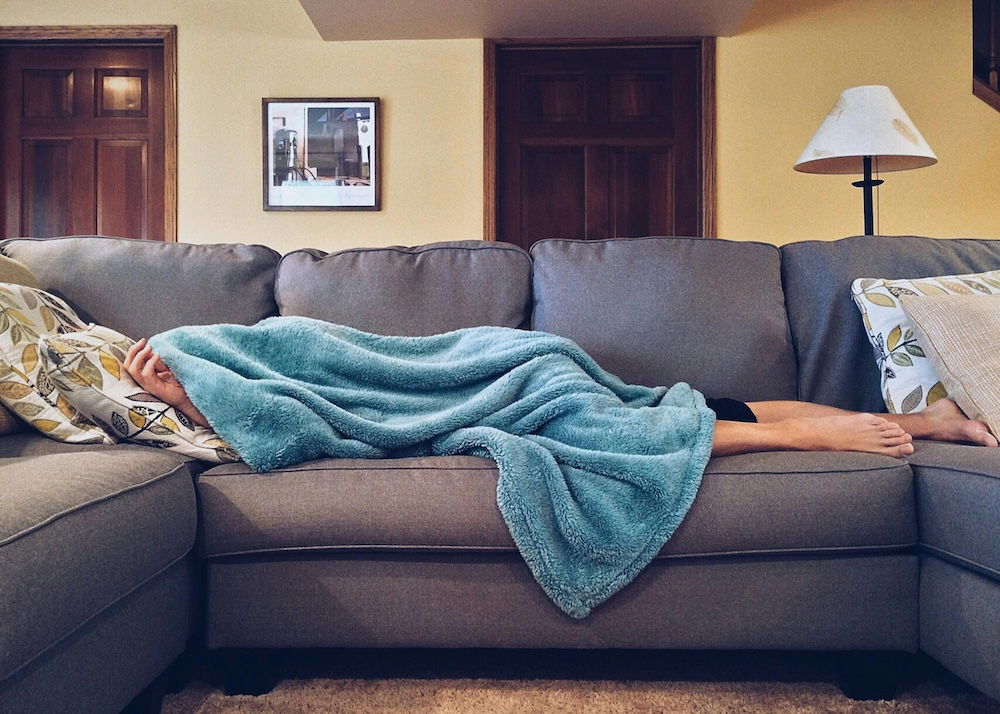Burnout rates are higher than ever and more and more people are experiencing burnout-related symptoms. In the Netherlands, as many as 17% of working people experience burnout complaints and symptoms. The good news is that burnout can be prevented and even remedied. Do you feel you are in the danger zone? These 5 self-care strategies will help you alleviate burnout symptoms.
We do not provide medical advice. This article is not intended to diagnose, treat, cure or prevent burnout. Do you have mental or physical symptoms and want medical advice from a specialist? Then always consult a (company) doctor or psychologist.
I have burnout, what should I do?
We all experience periods when we have less energy or when we feel less like going to work. But how do we know if these are burnout symptoms? After all, burnout is not always easy to recognize.
Read here how to recognize burnout symptoms.
Do the symptoms indicate that you have burnout? Then it is important to find ways to reduce your burnout symptoms. The solution? Do an activity daily to reduce stress and recharge.
Because the truth is that most people don't make enough time to rest. We run around like crazy during the week trying to keep all the balls high. The weekend is filled with birthdays, social plans and exercise classes, and on Monday we repeat everything from A to Z. With everything on our plate, it's no wonder we feel physically and mentally exhausted.
5 self-care strategies to recover from burnout
Can't muster the motivation to go to work anymore? Do you feel continuously exhausted? Or do you suffer from sudden physical symptoms such as headaches, tension in your muscles or abdominal discomfort? Then apply the following 5 strategies in your daily life to reduce burnout symptoms.
1. Take micro-breaks throughout the day
We often think you have to work hard to be productive. But did you know that resting is sometimes the most productive thing you can do? In order to work productively, think clearly and come up with creative solutions, it is necessary to let your brain do nothing for a while from time to time.
Taking a micro-break is a great way to do nothing for a while. A micro break is a small, voluntary break. And this can be done in as little as 5 minutes. For example, walk around the office or get a cup of coffee. But avoid checking your social media, for example. This actually creates additional stimuli that you have to process again. Micro breaks are meant to reduce built-up stress from the day and keep your concentration sharp.
Examples of micropauses are:
- Stretching
- Doing a breathing exercise
- Listening to relaxing music (for example, piano music)
- Watering plants
- Making a healthy snack
2. Recharge your battery
How you spend your time outside of work is almost as important as how you spend it at work. Do you never have an evening to yourself and your free time is filled with things that just sip energy? Then take some time to make conscious choices again. What do you want to spend your energy on?
For example, the following things leave your battery depleted:
- Movement
- Sunlight
- Practicing gratitude
- Yoga
- Resting
- Meditation
- Fresh air
- Writing
3. Make time to end your work day
What is your routine when you get home after a work day? Do you plop on the couch with your phone in your hand or do you really take some time to close out your workday? The latter is certainly important if you want to feel productive during work hours. In fact, messy boundaries between work and home can cause you to take your work stress home with you. This excessive involvement in your work can even eventually lead to emotional burnout.
It's not always easy to actually leave your work at work. Especially if you are a freelancer, have your own business or simply have too much on your plate. What can you do to leave your workday behind when you get home? Perhaps you like to have a cup of tea with your partner, discuss the day with your children or choose to completely unwind with a meditation.
Try Meditation Moments completely free for 7 days
Start free trial
4. Take good care of your body
Taking time to take good care of your body is essential if you want to combat burnout symptoms. Make sure you get enough sleep, eat healthy and exercise regularly. You can also undergo body stress release treatment to reduce tension in your body.
5. Set healthy boundaries
When you're recovering from burnout, resting is always paramount. Rest more often, longer and say no to things you don't have energy for. If you find it difficult to say no, it is important that you learn to set healthy boundaries. For example, decline an invitation to join you for lunch if you feel the need to be alone and don't feel guilty about it. It is healthy to have boundaries and to say no. And it is necessary to take care of your own needs if you want to be there for others as well.
We all experience stress at work from time to time. And sometimes you have no control over the amount of work coming at you for a while. But what you do have control over is your own boundaries, how well you take care of yourself and what choices you make.
I am burnout, what should I do?

Look for activities you can do daily to reduce stress and recharge:
- Take micro breaks throughout the day
- Recharge your battery
- Make time to end your workday
- Take good care of your body
- Set healthy boundaries
What are good burnout recovery tips?

Do symptoms indicate that you have burnout? Then it's important to find ways to reduce your burnout symptoms. The solution? Do an activity daily to reduce stress and recharge.
If you are recovering from burnout, rest is always paramount. Rest more often, longer and say no to things you have no energy for. Also, take enough small breaks throughout the day to reduce built-up stress. This will ensure that you are less likely to become exhausted.
Share article






















